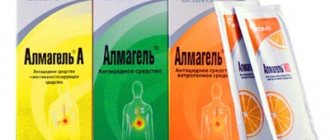Pharmacological authorities
Pharmacodynamics.
Dimenhydrinate should be added to ethanolamine. Dimenhydrinate is an H1 receptor blocker and has anti-diabetic, sedative, antimuscarinic, and antihistamine effects. The restlessness of the vomit is replaced by the center of the central nervous system.
Pharmacokinetics.
After oral administration, dimenhydrinate is absorbed quickly. The maximum concentration in blood plasma is reached 15-30 weeks after administration and is maintained for 4-6 years.
Approximately 98–99% of dimenhydrinate is bound to plasma proteins. Dimenhydrinate
pass through the placental barrier and penetrates breast milk.
Metabolism of dimenhydrinate occurs mainly in the liver. Seen from the body
lasting 24 years, important for the appearance of metabolites, for less - for unchanged
look like nirks. The period of administration of blood plasma is approximately 5-10 years.
Contraindications
“Dramina,” like any drug, has a number of contraindications. Tablets should not be taken if:
- The child suffers from epilepsy;
- The baby has sensitivity to one or more components that make up the medicine;
- The child was diagnosed with an acute form of vesicular or exudative dermatosis.
Dramamine should be treated with caution if children suffer from:
- Bronchial asthma;
- Cramps;
- Cardiovascular diseases;
- Obstruction of the bladder neck;
- Gastric or duodenal ulcer;
- Angle-closure glaucoma;
- Hyperthyroidism.
Treatment with Dramamine cannot be combined with antibacterial, painkillers and psychotropic medications.
Contraindicated
Sensitivity to dimenhydrinate and to other protigistamines of a similar structure or to any of the other substances that are included in the warehouse is increased.
Closed cuta glaucoma, intracranial pressure, pheochromocytoma, porphyria, prostatic hyperplasia with secrecy, vascular disease (eclampsia, epilepsy), acute attack of bronchial asthma, severe hepatic insufficiency no, severe nitric deficiency (creatinine clearance ≤ 25 mmol/min), childhood age up to 2 rokiv.
Precautions when taking Dramamine
Due to the fact that Dramamine affects a person’s mental state and can lead to inhibition of mental processes, one should limit work with potentially dangerous mechanisms while taking the drug, and refrain from driving and performing work that requires increased concentration.
The simultaneous use of Dramamine and antibiotics that have an ototoxic effect, for example, neomycin, amikacin, streptomycin, etc., is not recommended. In this case, irreversible hearing disorders may develop.
Interactions with other medicinal drugs and other types of interactions
After drinking alcohol with dimenhydrinate for one hour, the fragments can be changed and strengthened with dimenhydrinate.
Dimenhydrinate may enhance the anticholinergic effects of other medications (eg, atropine, antiparkinsonian medications, tricyclic antidepressants) and the central nervous system (CNS) depressant effects of such medications. to barbiturates, anesthetics, sedatives, tranquilizers, antidepressants, morphine-like drugs (analgesics, antitussive drugs) , medicines for admixture therapy), benzodiazepines, neuroleptics, centrally administered antihypertensive drugs, baclofen, thalidomide.
Drugs may have a depressant effect on the central nervous system of anti-epileptic drugs.
Co-administration with monoamine oxidase inhibitors (MAO) may enhance the anticholinergic effects of dimenhydrinate; In several episodes, paralytic syndrome was reported (sometimes life-threatening), suppression of the cut, increased intraocular pressure, possibly decreased arterial pressure, sedative action on the central nervous system and impaired breathing.
The drug may be injected with diazepam, leading to the effects of amphetamines and similar drugs. Taking dimenhydrinate reduces the activity of corticosteroid medications and oral anticoagulants.
Simultaneous use of medicinal drugs, such as sedatives, analgesic and psychotropic drugs, as well as scopolamine can cause blurred vision.
Particular care should be taken when treating patients who are on treatment for conditions that lead to an increase in the QT interval (class I and II arrhythmias, such as antibiotics, for example, erythroma cin, anti-malaria drugs, antihistamine drugs, antipsychotic drugs) or medicinal methods that lead to hypokalemia (for example, some specific septic conditions).
Dimenhydrinate may have adverse effects on ototoxic agents, such as aminoglycosides.
Therapy with stagnant dimenhydrinate should be started no less than three days before allergy tests, and the remainder of its use can lead to a negative result.
Drug overdose
If the patient takes too many Dramamine tablets, he will have an overdose attack with the following symptoms:
- Feeling of dryness in the mouth and nose;
- The face becomes red;
- Blood rushes to the head;
- Breathing problems;
- Red rashes appear on the body;
- Severe arrhythmia;
- Attacks of tachycardia;
- The patient's blood pressure drops sharply;
- Drowsiness and weakness occur;
- The person may lose consciousness;
- Problems with the functioning of the nervous system;
- Severe hallucinations;
- Cramps.
Features of good stagnation
Particular care should be taken to treat patients who suffer from: liver disease and liver disease, hyperthyroidism, bradycardia, arterial hypertension, chronic organ disease, respiratory disease, bronchial disease well, asthma, hypokalemia, hypomagnesemia, pyloric stenosis and puluroduodenal obstruction, vulgaris, intestinal obstruction, congenital syndrome of low QT interval or other clinically significant damage to the heart (cardiovascular disease, impaired blood flow, arrhythmias), simultaneously with the use of other medications that lead to further QT interval, or before hypokalemia. With caution, medicinal care should be taken in patients of summer age with a greater risk of developing orthostatic hypotension, obesity and sedative therapy, chronic constipation (risk of developing paralysis tic syndrome), potential hypertrophy of the anterior pelvis, Pankirson's disease. Such patients should take the lowest recommended dose for adults, as they are sensitive to the anticholinergic effects of the drug.
The doctor's task is to remove lactose. Patients with rare disorder galactose intolerance, Lapp lactose deficiency or glucose-galactose malabsorption are not required to take this medication.
Analogs
The active ingredient in Dramamine is dimenhydrinate. It is also present in other drugs. Therefore, if you cannot take Dramina for some reason, its analogues, which are also available in tablet form, can come to the rescue.
- “Ciel” is approved for use by children aged 2 years and older.
- “Aviamarin” is prescribed only if the child is already 6 years old.
- “Air – Sea” is also only suitable for six-year-olds and those older.
Method of congestion and dosage
Forgetfulness and tiredness and vomiting as a result of symptoms of sea and wind illness, during prolonged exchange therapy, medications and after surgery.
When children are older than 12 years of age: 50 mg (1 tablet) 30-60 weeks before the start of the trip, then whenever necessary, 50-100 mg daily for 4-6 years, but not more than 400 mg/day.
Children aged 6 to 12 years: 25-50 mg (1/2-1 tablet) skin every 6-8 years as needed, but not more than 150 mg/dose.
Children aged 2 to 6 years: 25 mg (1/2 tablet) skin every 6-8 years as needed, but not more than 75 mg/day.
In Meniere's disease and other disorders of the vestibular apparatus.
Adults: 50-100 mg (1-2 tablets) skin 4-6 years at times of need not exceeding the maximum dose of 400 mg (8 tablets).
For summer age patients, take a single dose of 25 mg (1/2 tablet).
Use caution in patients with nicotine and/or liver insufficiency. In case of liver failure, change the dose twice.
Indications for use
Doctors prescribe the drug Dramamine to relieve nausea and vomiting in cases of sea and air phobia. The drug copes well with motion sickness in transport and stops the urge to vomit. The product can be used after radiation therapy to relieve unpleasant symptoms. Doctors sometimes prescribe Dramamine after taking medications that cause nausea. The drug can be used after surgery.
As a symptomatic therapy, Dramamine is used for Meniere's disease. Excellent for patients with vestibular disorders.
Overdose
Symptoms
The first symptoms of overdose appear from 30 weeks to
2 years after taking a toxic dose (25 mg/kg body weight), symptoms include headache, confusion, fatigue and drowsiness.
After about an hour, additional symptoms appear: itching, ringing of the skin, dilatation of the spine with an increased reflex of the spine, cycloplegia, nystagmus, decreased muscle strength, tendon reflex and suppression of secrecy. The heart rate significantly increases, arterial pressure increases or decreases.
Also beware of symptoms of central nervous system (CNS) suppression (confusion, disorientation, ataxia, coma), or central nervous system (CNS) awakening (seizures, psychosis with hallucinations), which gradually worsen.
Likuvannya:
rinsing the mucus, using enterosorbents, symptomatic therapy.
Reviews
We have selected some people's reviews about the drug Dramamine:
- Larisa. I've been sick in transport since childhood. I decided to play it safe before a long trip and bought Dramamine tablets, which I drank a few minutes before the start. The pressure dropped. There was no nausea, but I felt so bad that nausea would have been better. These pills don't suit me.
- Aziza. Since childhood, I constantly suffered from an incomprehensible intolerance to buses, and even sometimes cars, long trips were terrible, a constant feeling of nausea. My mother advised me to try Dramamine many years ago. It’s a good drug, it definitely helps, the main thing is to drink it earlier, 30 minutes before your trip or flight. But the really big minus is that it has a sleeping pill as a side effect. It makes you terribly sleepy, even if you were awake before taking it. But if you want to on the way to sleep, and not chat as I plan every time, then this is the most necessary remedy for motion sickness


